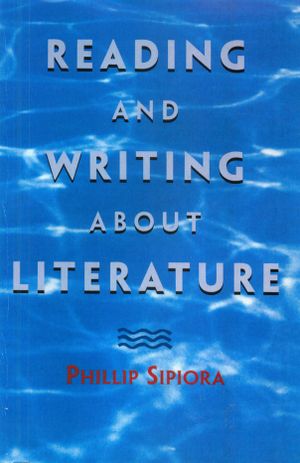→Writing: Updated. |
→Writing: Updated description. |
||
| (8 intermediate revisions by the same user not shown) | |||
| Line 1: | Line 1: | ||
{{DISPLAYTITLE:<span style="font-size:22px; color:#B2BABB;">{{BASEPAGENAME}}/</span>{{SUBPAGENAME}}}} | {{DISPLAYTITLE:<span style="font-size:22px; color:#B2BABB;">{{BASEPAGENAME}}/</span>{{SUBPAGENAME}}}} | ||
{{SHORTDESC:Syllabus for ENGL 1102, Spring 2025 | {{SHORTDESC:Syllabus for ENGL 1102, Spring 2025, CRN 22917, §44 MW 11–12:15}} | ||
{{Large|Welcome to ENGL 1102: English Composition II. | {{Large|Welcome to ENGL 1102: English Composition II.}} | ||
{{dc|T}}{{Big|In this course, you will develop your writing and research skills beyond ENGL 1101, with a focus on interpretation and evaluation of cultural texts. ENGL 1102 will introduce you to a range of fiction, drama, and poetry, and you will learn how to analyze and interpret these texts in depth.}} {{More}} | {{dc|T}}{{Big|In this course, you will develop your writing and research skills beyond ENGL 1101, with a focus on interpretation and evaluation of cultural texts. ENGL 1102 will introduce you to a range of fiction, drama, and poetry, and you will learn how to analyze and interpret these texts in depth.}} {{More}} | ||
| Line 15: | Line 15: | ||
==Requirements== | ==Requirements== | ||
{| class="wikitable floatright" width=" | {| class="wikitable floatright" width="300px" | ||
|- | |- | ||
! Requirement !! %{{refn|This is the general percentage breakdown for these requirements. As I use a point system for evaluation, the percentages are just an estimate.}} | ! Requirement !! %{{refn|This is the general percentage breakdown for these requirements. As I use a point system for evaluation, the percentages are just an estimate.}} | ||
| Line 21: | Line 21: | ||
| [[#Reading|Reading]] || style="text-align:center;" | 30% | | [[#Reading|Reading]] || style="text-align:center;" | 30% | ||
|- | |- | ||
| [[#Writing|Writing]] || style="text-align:center;" | | | [[#Writing|Writing]] || style="text-align:center;" | 50% | ||
|- | |- | ||
| [[#Participation|Participation]] || style="text-align:center;" | 10% | | [[#Participation|Participation]] || style="text-align:center;" | 10% | ||
|- | |||
| [[#Final Exam|Final Exam]] || style="text-align:center;" | 10% | |||
|} | |} | ||
This course is composed of three general requirements: reading, writing, and participation. The two former requirements will be on-going throughout the semester, will require regular contributions, and may be comprised of various assignments. Since this is a discussion and workshop course, attendance is crucial to your success and will be calculated into your grade. | This course is composed of three general requirements: reading, writing, and participation. The two former requirements will be on-going throughout the semester, will require regular contributions, and may be comprised of various assignments. Since this is a discussion and workshop course, attendance is crucial to your success and will be calculated into your grade. | ||
| Line 33: | Line 35: | ||
===Writing=== | ===Writing=== | ||
Students will | Students will write '''four (4) formal, interpretative essays''' that will both address a work of literature we have read for and discussed in class and apply a critical approach to interpreting that piece of literature. Some essays will require researching and citing secondary sources. Essays will be written with blue or black ink in blue books. Since this is a writing class, essays will be count for over half of your final grade. | ||
{{Participation}} | {{Participation}} | ||
===Final Exam=== | |||
The final examination is a two-hour essay written in response to class readings. This exam will be a comparative essay that asks students to analyze similar elements, like a theme or style, in at least two literary works that were assigned this semester. The final exam essay should reflect knowledge of the readings and course materials. See the [[#Schedule|schedule]] below for exam date and time. | |||
==Required Materials== | ==Required Materials== | ||
| Line 41: | Line 46: | ||
Our introduction to college literary studies this semester will have two required texts and materials: | Our introduction to college literary studies this semester will have two required texts and materials: | ||
* {{cite book |last=Sipiora |first=Phillip |date={{date|1994-01-01|MDY}} |title=Reading and Writing About Literature |url=https://amzn.to/3Cjywyn |location=Upper Saddle River, NJ |publisher=Prentice Hall |ref=harv }}{{refn|This book is out-of-print, but readily available via online retailers, like [https://bit.ly/3SaM8EE Thriftbooks], [https://bit.ly/48I0j9r AbeBooks], [https://bit.ly/3H65Qec Alibris], and [https://bit.ly/3TPaMvz Half-Price Books]. Please order it on the first day of class as you will need it right away for your assignments. While you await your textbook, you may checkout an electronic version | * {{cite book |last=Sipiora |first=Phillip |date={{date|1994-01-01|MDY}} |title=Reading and Writing About Literature |url=https://amzn.to/3Cjywyn |location=Upper Saddle River, NJ |publisher=Prentice Hall |ref=harv }}{{refn|This book is out-of-print, but readily available via online retailers, like [https://bit.ly/3SaM8EE Thriftbooks], [https://bit.ly/48I0j9r AbeBooks], [https://bit.ly/3H65Qec Alibris], and [https://bit.ly/3TPaMvz Half-Price Books]. Please order it on the first day of class as you will need it right away for your assignments. While you await your textbook, you may checkout an electronic version of the book for free at [https://archive.org/details/readingwritingab0000sipi Archive.org]. You may download the first chapter from [https://files.grlucas.com/d/f5793094250445528ee1/ my server]; I gave you the password in class the first day.}} | ||
* {{cite book |last=Wilson |first=August |date={{date|2020}} |orig-year={{date|1984}} |title=Ma Rainey’s Black Bottom |url=https://amzn.to/3imXcLD |location=New York |publisher=Plume |isbn=9780593184967 |ref=harv }} | * {{cite book |last=Wilson |first=August |date={{date|2020}} |orig-year={{date|1984}} |title=Ma Rainey’s Black Bottom |url=https://amzn.to/3imXcLD |location=New York |publisher=Plume |isbn=9780593184967 |ref=harv }} | ||
* Five [https://amzn.to/46G55Vj blue books]. | * Five [https://amzn.to/46G55Vj blue books]. | ||
| Line 68: | Line 73: | ||
We will do our best to stick by this schedule, but I will inform you verbally, via an email, and/or a literal change to the schedule below whenever there is a deviation. Getting these updates is solely your responsibility. Therefore, this schedule is tentative and subject to change contingent upon the needs of the students and the professor, and dictated by time and other constraints which may affect the course. For face-to-face classes, this schedule reflects only an overview of the assigned reading and other major course assignments. It may not indicate specific class session assignments or activities. Specific in-class assignments may not be reflected on the schedule. | We will do our best to stick by this schedule, but I will inform you verbally, via an email, and/or a literal change to the schedule below whenever there is a deviation. Getting these updates is solely your responsibility. Therefore, this schedule is tentative and subject to change contingent upon the needs of the students and the professor, and dictated by time and other constraints which may affect the course. For face-to-face classes, this schedule reflects only an overview of the assigned reading and other major course assignments. It may not indicate specific class session assignments or activities. Specific in-class assignments may not be reflected on the schedule. | ||
{| class="wikitable" style="width: | {| class="wikitable" style="width: 1080px;" | ||
|- | |- | ||
! Week !! Date !! Assignments | ! Week !! Date !! Assignments | ||
|- | |- | ||
! 1 | ! 1 | ||
| style="min-width: 150px;" | {{date|Jan | | style="min-width: 150px;" | {{date|Jan 8|none}} || [[CompFAQ/ENGL 1102#Orientation|Class Orientation]] | ||
| | |||
|- | |- | ||
| {{date| | ! 2 | ||
| {{date|Jan 13 & 15|none}} || [[CompFAQ/ENGL 1102#I. Introduction to College-Level Literary Studies|I. Introduction to College-Level Literary Studies]] | |||
|- | |- | ||
! | ! 3 | ||
| {{date| | | {{date|Jan 22|none}} || [[CompFAQ/ENGL 1102#II. Reader-Response Criticism|II. Reader-Response Criticism]] | ||
|- | |- | ||
| {{date| | ! 4 | ||
| {{date|Jan 27 & 29|none}} || Reader-Response Criticism (cont.) | |||
|- | |- | ||
! | ! 5 | ||
| {{date| | | {{date|Feb 3 & 5|none}} || style="background-color: #fcf3cf;" | {{font|font=Alegreya Sans SC|Essay #1}} | ||
|- | |- | ||
| {{date| | ! 6 | ||
| {{date|Feb 10 & 12|none}} || [[CompFAQ/ENGL 1102#VI. Cultural Criticism|VI. Cultural Criticism]] | |||
|- | |- | ||
! | ! 7 | ||
| {{date| | | {{date|Feb 17 & 19|none}} || [[CompFAQ/ENGL 1102#X. Marxist Criticism|X. Marxist Criticism]] | ||
|- | |- | ||
| {{date| | ! 8 | ||
| {{date|Feb 24 & 26|none}} || [[CompFAQ/ENGL 1102#VII. Feminist Criticism|VII. Feminist Criticism]] | |||
|- | |- | ||
! | ! 9 | ||
| {{date| | | {{date|Mar 3 & 5|none}} || style="background-color: #fcf3cf;" | {{font|font=Alegreya Sans SC|Essay #2}} | ||
|- | |- | ||
| {{date| | ! 10 | ||
| {{date|Mar 10 & 12|none}} || [[CompFAQ/ENGL 1102#IV. Ethical Criticism|IV. Ethical Criticism]] | |||
|- | |- | ||
! | ! 11 | ||
| {{date| | | {{date|Mar 24 & 26|none}} || [[CompFAQ/ENGL 1102#VIII. Psychological Criticism|VIII. Psychological Criticism]] | ||
|- | |- | ||
| {{date|Apr | ! 12 | ||
| {{date|Mar 31 & Apr 2|none}} || [[CompFAQ/ENGL 1102#V. Civic Criticism|V. Civic Criticism]] | |||
|- | |- | ||
! | ! 13 | ||
| {{date|Apr | | {{date|Apr 7 & 9|none}} || style="background-color: #fcf3cf;" | {{font|font=Alegreya Sans SC|Essay #3}} | ||
|- | |- | ||
| {{date|Apr | ! 14 | ||
| {{date|Apr 14 & 16|none}} || [[CompFAQ/ENGL 1102#XI. Research|XI. Research]] | |||
|- | |- | ||
! | ! 15 | ||
| {{date|Apr | | {{date|Apr 21 & 23|none}} || Screening of Wolfe, ''Ma Rainey’s Black Bottom'' | ||
|- | |- | ||
| {{date|Apr | ! 16 | ||
| {{date|Apr 29 & 30|none}} || style="background-color: #fcf3cf;" | {{font|font=Alegreya Sans SC|Essay #4}} | |||
|- | |- | ||
! | ! Final Exam | ||
| colspan="2" style="background-color: #FADBD8;" | {{date|Friday, May 2, 10:30–12:30|none}} | |||
|} | |} | ||
Latest revision as of 10:37, 8 January 2025
Welcome to ENGL 1102: English Composition II.
TIn this course, you will develop your writing and research skills beyond ENGL 1101, with a focus on interpretation and evaluation of cultural texts. ENGL 1102 will introduce you to a range of fiction, drama, and poetry, and you will learn how to analyze and interpret these texts in depth.
This course will also develop your research skills, including finding and evaluating sources, synthesizing information, and citing sources appropriately. In addition to written assignments, you may also be required to participate in an oral communication component, which will help you develop your skills in speaking and presenting in front of an audience.
By the end of the course, you will have a more advanced level of proficiency in writing and research, and you will be able to effectively interpret and evaluate literature. You will also have improved your skills in oral communication, which will be valuable in a variety of settings.
Introduction
The document you’re reading is your syllabus. Everything you need for this class is on this page and linked off of it. The tabs above access the major portions of the syllabus. Bookmark this page now and return here if you get lost or confused.[1] Use the tabs above to navigate to the various sections of the syllabus.[2]
Before you begin, take a moment and familiarize yourself with the general resources I have for students. All of these may be found in the “For Students” menu at the top of the page, or you can just begin on the student start page. These pages are designed to help you succeed in this class. While you may not read everything, you should know what’s available if you need it.
Please read this document and those it links to carefully at the beginning of the semester. There is much information to process, and it can be somewhat daunting — especially if you read cursorily. If you are confused, do your best to work through it by (re)reading this document carefully and completely, searching this site, or consulting the FAQ. I promise, there is an answer to your question. If all else fails, you may contact me. Trust yourself to follow directions and find the answers. Be careful and deliberate.
Requirements
| Requirement | %[3] |
|---|---|
| Reading | 30% |
| Writing | 50% |
| Participation | 10% |
| Final Exam | 10% |
This course is composed of three general requirements: reading, writing, and participation. The two former requirements will be on-going throughout the semester, will require regular contributions, and may be comprised of various assignments. Since this is a discussion and workshop course, attendance is crucial to your success and will be calculated into your grade.
Reading
Each lesson’s major focus will be reading primary texts (the literature) and secondary texts (critical response to the literature). Reading quizzes will test your knowledge of the materials, focusing on factual details like plot points, rather than interpretative readings. Students should take thorough notes as they read—like character names, plot points, and other details—that will help them on quizzes and later analysis of the texts in their writing.
Reading quizzes and in-class assignments cannot be made up for any reason.
Writing
Students will write four (4) formal, interpretative essays that will both address a work of literature we have read for and discussed in class and apply a critical approach to interpreting that piece of literature. Some essays will require researching and citing secondary sources. Essays will be written with blue or black ink in blue books. Since this is a writing class, essays will be count for over half of your final grade.
Participation
Active participation in the classroom is required. Your daily work and attendance represents your participation, e.g.: reading, discussions, training, exercises, library tasks, reading quizzes, peer editing, the viewing of a film, and similar activities. Your participation in group activities and your preparation for class will be weighed heavily in evaluation: participation, effort, and attitude count significantly. You should not sit in class like you’re watching TV: learning requires active participation and enthusiasm . Participation grades cannot be made up.
Final Exam
The final examination is a two-hour essay written in response to class readings. This exam will be a comparative essay that asks students to analyze similar elements, like a theme or style, in at least two literary works that were assigned this semester. The final exam essay should reflect knowledge of the readings and course materials. See the schedule below for exam date and time.
Required Materials

Our introduction to college literary studies this semester will have two required texts and materials:
- Sipiora, Phillip (January 1, 1994). Reading and Writing About Literature. Upper Saddle River, NJ: Prentice Hall.[4]
- Wilson, August (2020) [1984]. Ma Rainey’s Black Bottom. New York: Plume. ISBN 9780593184967.
- Five blue books.
- Any writing implement and paper for in-class note-taking.
Your course book(s) or readings should always accompany you to class, as we will make heavy use of them in our daily discussions. Please do not come to class without it: we need the texts for class activities, in-class writing, and all aspects of our study. PDFs must be printed if they are used in class—this includes exams. Failure to do so will earn you an absence .
You should also bring an ink interface of some sort, as well as dead trees on which to take notes. Notes should not only reflect good listening skills, but individual interest in every topic discussed in class.
Policies
Students are held accountable for knowing and practicing each of the following course policies. Consider them like the law: the excuse “I didn’t know” will carry no weight. In addition, students are responsible for reading, understanding, and adhering to all Middle Georgia State University institutional policies, including those linked on the Syllabus Policy page.
Students may withdraw from the course and earn a grade of “W” up to and including the midterm date. After midterm, students who withdraw will receive a grade of “WF.” Students are encouraged to read the MGA withdrawal policy before dropping/withdrawing from class.
Assignments and Deadlines
Your work represents you. Everything you turn in for evaluation should exemplify the very best of your professional self. Late work is unacceptable and will receive a zero. Technical problems do not excuse late work. Plan ahead and turn in your work on time. Last-minute work submissions are ineligible for revision for a higher grade.
Attendance
Poor attendance will negatively affect your grade. You must endeavor to attend every class, and it is your responsibility to ask a fellow classmate what you missed; in-class assignments, like quizzes, cannot be made up. Too many absences will constitute class failure. Please read the attendance policy carefully.
Behavior
Students should conduct themselves like students: take notes, pay attention, ask questions, eliminate distractions, and listen. Improper conduct, including academic falsehood, will negatively effect your grade and may result in other disciplinary measures.
Communication
Communication is integral to success, no matter what we’re talking about. In a digital world, these literacies are particularly important. Not only should you develop and perfect your communication skills while in college, you need to use those skills everyday with your peers and professors.
Evaluation
Evaluation depends on overall student performance: on the successful completion of all requirements, regular participation, and positive attitude. Some requirements are weighed heavier in evaluation, but all are essential to successfully complete the class. Letter grades are based upon a traditional ten-point scale. Grades for this class will be based on the point system.
Participation
Active participation in the classroom is required. Your daily work and attendance represents your participation, e.g.: reading, discussions, training, exercises, library tasks, reading quizzes, peer editing, the viewing of a film, and similar activities. Your participation in group activities and your preparation for class will be weighed heavily in evaluation: participation, effort, and attitude count significantly. You should not sit in class like you’re watching TV: learning requires active participation and enthusiasm . Participation grades cannot be made up.
Plagiarism
Plagiarism is serious academic misconduct. Willful or accidental plagiarism—including using AI tools to generate assignments—will result in assignment failures, potential class failure, and will be pursued to incite the utmost penalty for such dishonesty.
Research
All writing in this course should be supported with both primary (readings I assign you) and secondary (sources you find yourself) texts. All suppositions must be supported with evidence, whether they appear on a forum post, a blog post, a Wikipedia article, or class discussion. In other words: research is an integral component of everything you do in this course. Any ideas that are not supported might as well not be written.
Schedule
This schedule represents the ideal outline for our study this semester. Yet, like all best-laid plans, we may not be able to keep up with our agenda. Please be flexible and try to look and read ahead whenever possible.
We will do our best to stick by this schedule, but I will inform you verbally, via an email, and/or a literal change to the schedule below whenever there is a deviation. Getting these updates is solely your responsibility. Therefore, this schedule is tentative and subject to change contingent upon the needs of the students and the professor, and dictated by time and other constraints which may affect the course. For face-to-face classes, this schedule reflects only an overview of the assigned reading and other major course assignments. It may not indicate specific class session assignments or activities. Specific in-class assignments may not be reflected on the schedule.
| Week | Date | Assignments |
|---|---|---|
| 1 | Jan 8 | Class Orientation |
| 2 | Jan 13 & 15 | I. Introduction to College-Level Literary Studies |
| 3 | Jan 22 | II. Reader-Response Criticism |
| 4 | Jan 27 & 29 | Reader-Response Criticism (cont.) |
| 5 | Feb 3 & 5 | Essay #1 |
| 6 | Feb 10 & 12 | VI. Cultural Criticism |
| 7 | Feb 17 & 19 | X. Marxist Criticism |
| 8 | Feb 24 & 26 | VII. Feminist Criticism |
| 9 | Mar 3 & 5 | Essay #2 |
| 10 | Mar 10 & 12 | IV. Ethical Criticism |
| 11 | Mar 24 & 26 | VIII. Psychological Criticism |
| 12 | Mar 31 & Apr 2 | V. Civic Criticism |
| 13 | Apr 7 & 9 | Essay #3 |
| 14 | Apr 14 & 16 | XI. Research |
| 15 | Apr 21 & 23 | Screening of Wolfe, Ma Rainey’s Black Bottom |
| 16 | Apr 29 & 30 | Essay #4 |
| Final Exam | Friday, May 2, 10:30–12:30 | |
Instructor
Please do not use the D2L email system to contact me. I do not receive this email and you will not get a reply. |
notes
- ↑ While you may certainly choose to print it—we will do our best to follow the schedule hereon—it may change during the course of the semester due to unforeseen circumstances. Should this occur, I will let you know, but ultimately, this online document has the final say—not a printed one.
- ↑ You might, too, follow links by opening them in browser tabs—click the link by holding the ⌘ Command on a Mac or Ctrl on a PC—so you can easily return to where you left off.
- ↑ This is the general percentage breakdown for these requirements. As I use a point system for evaluation, the percentages are just an estimate.
- ↑ This book is out-of-print, but readily available via online retailers, like Thriftbooks, AbeBooks, Alibris, and Half-Price Books. Please order it on the first day of class as you will need it right away for your assignments. While you await your textbook, you may checkout an electronic version of the book for free at Archive.org. You may download the first chapter from my server; I gave you the password in class the first day.
| 🕒 01-8-2025 | 📆 Make an Appointment | 💬 Ask a Question | 📣 Leave Feedback |



